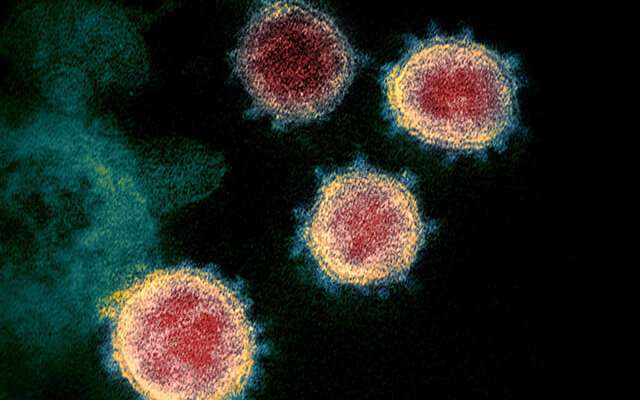#Research reveals compromised transfer of SARS-CoV-2-specific antibodies through placenta

“#Research reveals compromised transfer of SARS-CoV-2-specific antibodies through placenta”

Recent analyses indicate that pregnant women and newborns may face elevated risks of developing more severe cases of COVID-19 following SARS-CoV-2 infection. New research led by investigators at Massachusetts General Hospital (MGH) and published in Cell reveals lower than expected transfer of protective SARS-CoV-2 antibodies via the placenta from mothers who are infected in the third trimester. The cause may be alterations to these antibodies after they’re produced—a process called glycosylation.
The results expand on the team’s recent findings published in JAMA Network Open that pregnant women with COVID-19 pass no SARS-CoV-2 virus, but also relatively low levels of antibodies against it, to newborns. For this latest study, the scientists compared maternal antibodies against the flu (influenza), whooping cough (pertussis), and SARS-CoV-2, and how these antibodies transferred across the placenta. Influenza- and pertussis-specific antibodies were actively transferred in a relatively normal fashion. In contrast, transfer of SARS-CoV-2-specific antibodies to the baby was not only significantly reduced, but the antibodies transferred were less functional than the antibodies against influenza. The reduced transfer was only observed in third trimester infection.
The scientists found that altered attachments of carbohydrates to the SARS-CoV-2-specific antibodies—a process called glycosylation—may be to blame for this reduced transfer from mother to fetus in the third trimester. The carbohydrate attachments on SARS-CoV-2-specific antibodies in maternal blood were different than those seen on influenza- and pertussis-specific antibodies. This carbohydrate pattern may cause the COVID-specific antibodies to be “stuck” in the maternal circulation, rather than transferred across the placenta via placental antibody receptors. Infection-induced increases in total maternal antibodies, as well as higher placental expression of an antibody receptor that attracts the carbohydrate pattern on the SARS-CoV-2-specific antibodies, helped to partially overcome the problem and facilitate the transfer of some functional antibodies from mother to fetus. Interestingly, some of the antibodies that transferred the best were also the most functional, activating natural killer cells that could help the newborn fight the virus if exposed.
The findings have implications for the design of vaccines against SARS-CoV-2 for pregnant women. “Vaccine regimens able to drive high levels of the COVID-specific antibodies with glycosylation patterns favored by the placenta for selective transfer to the fetus may lead to better neonatal and infant protection,” says co-senior author Andrea Edlow, MD, MSc, a maternal-fetal medicine specialist at MGH and an assistant professor of Obstetrics, Gynecology, and Reproductive Biology at Harvard Medical School. Co-senior author and Core Member at the Ragon Institute of MGH, MIT and Harvard, Galit Alter, Ph.D., notes: “We are beginning to define the rules of placental antibody transfer of SARS-CoV-2 for the very first time—catalyzing our ability to rationally design vaccines to protect pregnant women and their newborns.”
In addition, understanding how antibody transfer varies by trimester may point to critical windows in pregnancy that may be most desirable for vaccination to optimize protection for both the mother and her infant.
Follow the latest news on the coronavirus (COVID-19) outbreak
Caroline Atyeo et al, Compromised SARS-CoV-2-specific placental antibody transfer, Cell (2020). DOI: 10.1016/j.cell.2020.12.027
Citation:
Research reveals compromised transfer of SARS-CoV-2-specific antibodies through placenta (2020, December 23)
retrieved 23 December 2020
from https://medicalxpress.com/news/2020-12-reveals-compromised-sars-cov-specific-antibodies-placenta.html
This document is subject to copyright. Apart from any fair dealing for the purpose of private study or research, no
part may be reproduced without the written permission. The content is provided for information purposes only.
If you liked the article, do not forget to share it with your friends. Follow us on Google News too, click on the star and choose us from your favorites.
For forums sites go to Forum.BuradaBiliyorum.Com
If you want to read more Like this articles, you can visit our Science category.



